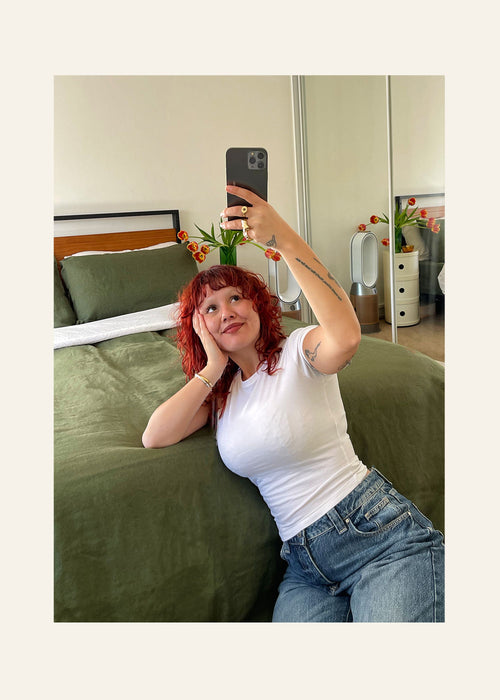
"The Hack That Cured My Insomnia in One Night"
Can this counterintuitive sleep hack help me drift off with ease?
I don’t recall exactly when insomnia became a firm fixture in my life – that’s how long I’ve struggled with it. Even as a child, I was never a ‘good sleeper’. At sleepovers, my friends would drift off with what seemed like total ease, while I would toss and turn, my mind racing. Ironically, the more I tried to fall asleep and switch my brain off, the worse my insomnia became. It’s a pattern that has persisted throughout the years.
In adulthood, I’ve had periods of being incredibly dedicated to sleep hygiene, limiting screen time before sleep, establishing a consistent bedtime and implementing a pre-bed routine that included lavender oil and meditation. But, bizarrely, these periods when I was so obsessively dedicated to getting a good night’s sleep were some of the most sleepless nights of my life. The more I fixated on sleep, the more elusive it became.
As it turns out, there’s a reason why this was happening. When we’re so determined to fall asleep, we can heighten our anxiety and stress levels, ultimately making it harder to nod off into that slumber we so crave. Think of it like sleep-related performance anxiety; we get so in our heads that we’re doing the opposite of relaxing, making surrendering to sleep an impossibility.
Thankfully, there’s a science-backed sleeping hack that has proven to be a game-changer when treating insomnia: paradoxical intention. So what is it, and does it actually work? I put it to the test over a week-long period to find out.
What is the paradoxical intention sleep hack?
Paradoxical intention is a treatment procedure that’s been used in psychological therapy for decades. It’s used to treat a vast array of disorders and phobias but the premise is surprisingly simple and oddly counterintuitive – you need to deliberately do the opposite of what you’re trying to achieve. A 2021 study published in the Journal of Sleep Research that looked at the benefits of paradoxical intention in treating insomnia found it notably reduced people’s performance anxiety around sleep.
By intentionally staying awake instead of forcing themselves to sleep, people were able to relax and stop stressing about their inability to fall asleep. Paradoxically, when they did this, they fell asleep faster. It’s now widely recognised as a useful and effective technique for people struggling with sleeplessness.
Being distracted by a boring task, be it laundry, reading or something similarly mundane, really puts my mind into a relaxed, calm state and allows sleep to almost take me by surprise. It’s a technique I’ve now implemented pretty regularly when I’m struggling with sleeplessness, and its success rate has been surprisingly high so far. So, if you’re at your wit’s end and feel like you’ve tried all the traditional approaches to dealing with insomnia, paradoxical intention is worth trying. At the very least, you’ll end up with neatly folded laundry and maybe even a colour-coded bookshelf.
For more from Cait, follow her @caitemmaburke
This article is intended for informational purposes only and is not a substitute for individualised health advice. If you are concerned about your health and wellbeing, please speak to your GP, who will advise on the correct treatment plan. You can also call Lifeline 24/7 for mental health support on 13 11 14.
Create Soothing Sleep Space
Enjoyed This?
Read more sleep-related articles.











